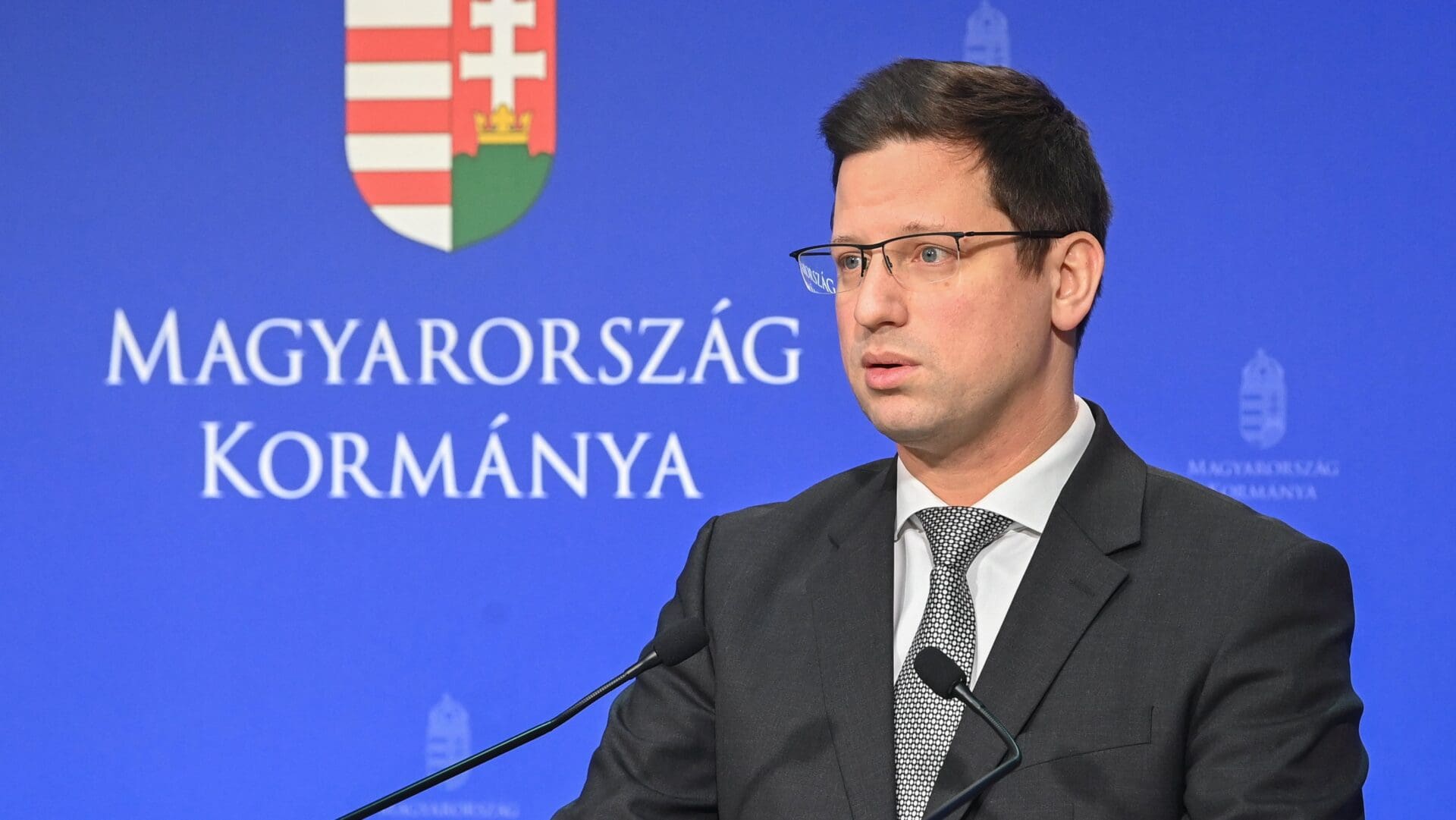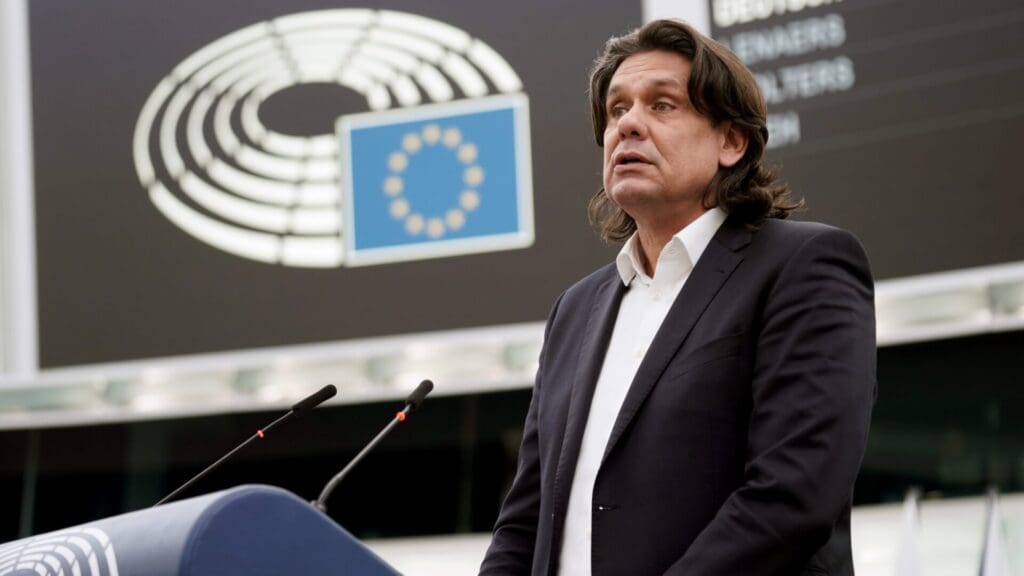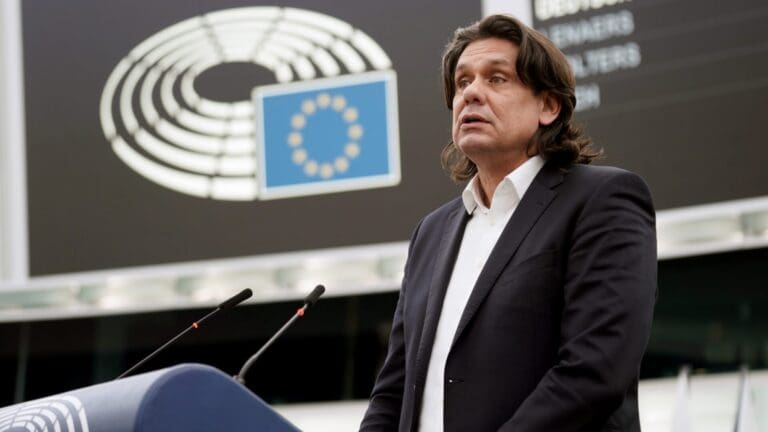The government supports the resolution proposal on the Russo-Ukrainian war before the National Assembly and continues to believe that an immediate ceasefire and peace negotiations are necessary, said the minister leading the Prime Minister’s Office in Budapest on Thursday during his regular press brief.
Gergely Gulyás stated that the government believes that it is necessary to prepare for a protracted war and that economic difficulties persist due to the sanctions. He added that Hungary’s position is clear: Hungary condemns Russian aggression and provides humanitarian assistance to Ukraine.
He said that during the parliamentary debate on the proposal, it became apparent that domestic political relations have not changed, and the Hungarian left still supports sanctions, would supply weapons to Ukraine, and drag Hungary into the war. Gulyás also reiterated that due to the sanctions inflation has reached record levels, but the government hopes that it will decrease to a single-digit by the end of the year.
Energy Matters
In terms of wind energy, the minister stated that access to EU energy transition funding is a prerequisite for building wind turbines. He explained that the government already presented their proposal about the turbines to the European Commission, which has accepted it. He added that there are legitimate objections to the operation of wind turbines, which is why the government insist that local authorities should decide on wind turbine construction.
Gulyás stressed that it is of key importance that according to the European Union’s statistical office, Hungarian families are paying the lowest utility prices for gas and electricity in Europe.
Moving The Hungarian Embassy To Jerusalem
Regarding the relocation of the Israeli embassy, Gulyás said that Hungary is one of the few countries that has opened a commercial representation in Jerusalem. Hungary intends to keep the representative office open, he added, noting that no other decision has been made yet.
The Child Protection Act
Gulyás Gergely declared that the child protection law must be enforced and protected amidst international disputes. This is because, unfortunately, there have been an increasing number of cases of child abuse coming to light in recent weeks, which demonstrate the need for the child protection law and the review of legal regulations regarding child protection, which is currently ongoing. He explained that at Wednesday’s government meeting, Justice Minister Judit Varga reported on the content of her counterclaim submitted to the European Court of Justice in the litigation regarding the Hungarian child protection law. Gulyás indicated that the government remains committed to its position that it is clear and unambiguous in the Charter of Fundamental Rights of the European Union that education falls within national jurisdiction and that parents have the right to decide on the upbringing of their children. The minister noted that he trusts that the Hungarian child protection law will be judged solely on the basis of EU law at the European Court of Justice, and if this is the case, ‘there is nothing to worry about.’
Teacher Salaries
Gulyás was asked about the promised hike of teacher salaries. The minister emphasised that the government wants to take a big step in this area, relying on EU funds, ‘if the Brussels bureaucracy, and the Hungarian opposition, does not do everything in their power to prevent Hungarian teachers from receiving their due pay, or to delay it as long as possible, we will make it happen.’ He reminded that on 1 January, salaries were increased by 10 per cent, with the aim of raising the level of teacher wages to 80 per cent of the Hungarian average salary by the end of next year.
The Question Of NATO
The minister said that the government party representatives will listen to the delegation that visits Finland and Sweden next week, and then make a final decision on the question of the two countries’ NATO accession.
The minister said that the two countries are in an alliance with Hungary in the European Union, ‘yet they have been involved in a wave of gross lies about our country.’ He reminded that in spite of that, the prime minister has asked the ruling parties for their support of the accession of the two Nordic countries.
Higher Education
Regarding the debate on financing of higher education cooperation programs, he said that this is ‘a fake problem’ created by the European Commission, partly as a result of the activities of the Hungarian opposition. He emphasised that the model change of universities provides the broadest possible freedom to higher education institution. He drew attention to the fact that the rectors of universities run by foundations unanimously supported the change and have not requested the ‘attempt at intervention’ by Brussels because the change ‘opened up new horizons for them’.
The withdrawal of the funding of Erasmus programmes is an act of revenge against Hungary, he said, indicating that if a quick solution is not found, then the programmes will be financed from the Hungarian central budget. Gulyás insisted that the European Commission made a racially-motivated step. ‘It is a decision against the Hungarian ethnic group, if you will, a Hungarian-hating revenge’ that affects those who belong to the cultural nation, all those who live here, and Hungarian citizens, the minister declared.
Harmony Between Monetary And Fiscal Policy
When asked about György Matolcsy’s statements, Gulyás emphasised that the government does not want to take a stand on what the central bank governor says or why he says it. ‘We strive for good cooperation with the central bank, so under no circumstances do we want to assume personal reasons behind a central bank governor’s statement,’ he said. Gulyás said that there needs to be harmony between monetary and fiscal policy, and then mentioned that ‘inflation is the responsibility of the central bank,’ so instead of highlighting the differences, the central bank governor should think about breaking the cycle.
Investments And Taxes
When asked about the fate of the Dunaújváros steel plant, the minister said that for a year now, the government has been working to preserve the local steel industry and the large number of jobs it represents; he said it was ‘insane and outrageous, but also illegal’ for the municipality to endanger this by taking enforcement action during the liquidation. ‘We wouldn’t expect this even from a foreign creditor, let alone from a city whose most eminent interest is that this company can survive,’ Gulyás noted.
The minister stated that the excess profit tax would be ‘phased out next year wherever possible,’ and that they would like to moderate it in other areas, ‘but some contribution still needs to be requested.’ He reminded that the costs of restraining household energy prices are paid from the excess profit tax paid into the utility costs reduction fund.
He said that there are problems with accessing the entire EU recovery fund, as only 17 per cent of it has been paid out so far, and even those who have received it are not satisfied. He also stated that Hungary did not miss out on the funding due to concerns about abuses by the EU, but rather because of its differing stance on issues such as war, migration, or child protection, which created anti-Hungarian sentiment in Brussels.
Gulyás called the construction of car battery factories a very good investment, emphasising that the rise of battery dominance is part of the construction of a green economy. He added that it is in Hungary’s interest to secure the conditions for the transition to electric propulsion, as ‘Hungary is in the fortunate position of having carved out a significant portion for itself from the automotive industry’.
Power Plants And Nord Stream
Regarding the investigation into the explosion of the Nord Stream gas pipeline, the minister stated that an impartial international investigation is needs to clarify the identity of the perpetrator. However, the victim, Germany, ‘does not seem to have decided whether to be offended’ that its energy security has been severely compromised. Rather, the country acts as if it has a guilty conscience because the success of the German economy is partly built on cheap Russian gas, he said.
The minister indicated that the government is confident that it can use EU funds to procure Azerbaijani gas, as this serves diversification. Asked about the construction of gas power plants, he said they could be built the fastest, in two to three years, by EU companies.
Regarding the relocation of the Hungarian embassy in Israel to Jerusalem, Gulyás Gergely said that Hungary intends to maintain its commercial office in the city, and no further decision has been made.
Regarding the possible Kyiv visit of the Prime Minister, he said it will happen ‘if it is s substantive trip, not just one of symbolic significance.’ The government has recently announced that Viktor Orbán received an invitation from the Ukrainian President, which the PM intends to accept, however, preparations need to be made beforehand and they need to work out the specific details of the visit with Ukraine’s government.








